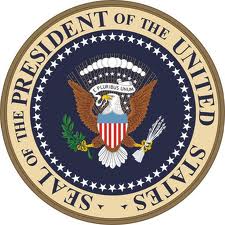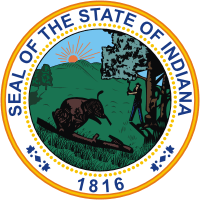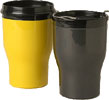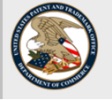Washington, DC. On Thursday, July 26, 2012, the United States Patent Office published in the Federal Register proposed rules and proposed examination guidelines for the first-inventor-to-file provision of the America Invents Act. The first-inventor-to-file provision converts the United States from a “first-to-invent” to a “first-inventor-to-file” system. The proposed rules and proposed examination guidelines amend the rules of patent practice to implement the conversion and show the Office’s interpretation of how the conversion impacts sections of the Manual of Patent Examining Procedure related to novelty and obviousness. The proposed rules and proposed examination guidelines are accessible here:
Articles Posted in Intellectual Property Law
APP Press Sues Apress Media for Declaration of Non- Infringement of Trademark “App Press”
Indianapolis; IN – Trademark attorneys for App Press, LLC of Indianapolis, Indiana filed a declaratory judgment suit seeking a declaration that it is not infringing the trademarks of Apress Media, LLC of New York, New York.
App Press, LLC brings action against Apress Media, LLC in order to protect the right to use and continue to conduct business under the registered trademark, and asserts that use of the mark for App Press does not infringe on any trademark held by Apress. App Press is a company that creates, owns, and licenses the use of web-based software that allows consumers to create apps that can be used on mobile devices. According to the Complaint, App Press applied for trademark registration on January 7, 2011 and was registered by the United State Patent and Trademark Office on August 9, 2011. During this period, the trademark was open to opposition on May 24, 2011. Apress Media is a publishing company that edits, publishes and sells books with the focus on technological issues and how-to advice. Apress Media applied for trademark registration on May 7, 2010 and was registered on March 8, 2011. According to App Press, on August 15, 2011, Apress Media sent a cease and desist letter demanding App Press immediately stop the use of their trademark alleging that it infringed on the trademark of Apress and constituted trademark infringement, unfair competition, cyberpiracy and dilution. App Press claims that they forwarded the letter to their counsel who contacted Apress Media’s counsel by phone. Almost two weeks passed that counsel for both parties went back and forth via telephone before they were able to confer regarding the issues set forth in the letter in which App Press agreed and sent a letter describing their product and why it was not infringing on Apress Media’s trademark. Approximately eight months later, on May 8, 2012, Apress again contacted App Press and again asserted that App Press’s use of the App Press trademark was infringing on the Apress trademark. Counsel for App Press has filed the Complaint for declaratory relief and to obtain declaration that App Press’s use of their trademark does not infringe upon any trademarks owned by Apress Media.
consumers to create apps that can be used on mobile devices. According to the Complaint, App Press applied for trademark registration on January 7, 2011 and was registered by the United State Patent and Trademark Office on August 9, 2011. During this period, the trademark was open to opposition on May 24, 2011. Apress Media is a publishing company that edits, publishes and sells books with the focus on technological issues and how-to advice. Apress Media applied for trademark registration on May 7, 2010 and was registered on March 8, 2011. According to App Press, on August 15, 2011, Apress Media sent a cease and desist letter demanding App Press immediately stop the use of their trademark alleging that it infringed on the trademark of Apress and constituted trademark infringement, unfair competition, cyberpiracy and dilution. App Press claims that they forwarded the letter to their counsel who contacted Apress Media’s counsel by phone. Almost two weeks passed that counsel for both parties went back and forth via telephone before they were able to confer regarding the issues set forth in the letter in which App Press agreed and sent a letter describing their product and why it was not infringing on Apress Media’s trademark. Approximately eight months later, on May 8, 2012, Apress again contacted App Press and again asserted that App Press’s use of the App Press trademark was infringing on the Apress trademark. Counsel for App Press has filed the Complaint for declaratory relief and to obtain declaration that App Press’s use of their trademark does not infringe upon any trademarks owned by Apress Media.
Practice Tip: The remedy of declaratory judgment is found in 28 U.S.C.A. § 2201 and allows for any US court to declare the rights and other legal relations of any interested party seeking such declaration, whether or not further relief is or could be sought.
Continue reading
Dillinger Sues Pour House on Lincoln for Trademark Infringement of PUBLIC ENEMY
Indianapolis; IN – Trademark attorneys for Dillinger, LLC of Mooresville, Indiana filed a complaint for injunctive relief and damages in alleging The Pour House on Lincoln, Inc. d/b/a Dillinger’s Chicago Bar & Grill, Inc. of Chicago, Illinois infringed trademark registration nos. 3,483,359 for the mark DILLINGER’S and no. 4,091,160 for the mark PUBLIC ENEMY which have been registered by the US Trademark Office.
![]() Dillinger, LLC is owned and operated by Jeff Scalf and, according to the Complaint, is the descendant of gentleman bandit John Dillinger. Dillinger, LLC owns numerous trademark registrations for DILLINGER, JOHN DILLINGER, PUBLIC ENEMIES, and many other trademarks related to the life of John Dillinger. Dillinger, LLC is also the owner of all rights, title, and interest to both DILLINGER’S and PUBLIC ENEMIES and both marks have been used in interstate commerce in connection with restaurant and bar services as early as 2002. According to the Complaint, Dillinger, LLC has never authorized The Pour House on Lincoln d/b/a Dillinger’s Chicago Bar & Grill to use the DILLINGER or PUBLIC ENEMIES marks in any way and also alleges that in July 2010 it came to their attention that the Defendants were operating a restaurant using the DILLINGER and PUBLIC ENEMIES trademarks. Upon their knowledge of the trademark usage, Dillinger, LLC alleges that The Pour House was contacted about the infringement and in August of the same year they traveled to Indianapolis for the purpose of obtaining a license for the use of the trademarks. The Complaint states that an oral agreement was reached and reduced to writing, but never executed and yet The Pour House willfully continued its infringing usage of the DILLINGER and PUBLIC ENEMIES trademarks, specifically on their website, food and drink menus and the menus posted on the storefront. Dillinger, LLC asserts five counts for the violations of the defendants, including demand for preliminary and permanent injunction; federal trademark infringement; cybersquatting; false designation of origin, false descriptions and unfair competition; and dilution by blurring. In order to avoid any irreparable harm from the loss of reputation the DILLINGER names could suffer as a result of the unauthorized use of the trademarks and the accrual thereof, Dillinger, LLC is seeking to permanently enjoin The Pour House from using the DILLINGER and PUBLIC ENEMIES trademarks or inducing such belief, actual damages suffered as a result of the alleged trademark violations, statutory and exemplary damages, and the profits derived from the infringing activities.
Dillinger, LLC is owned and operated by Jeff Scalf and, according to the Complaint, is the descendant of gentleman bandit John Dillinger. Dillinger, LLC owns numerous trademark registrations for DILLINGER, JOHN DILLINGER, PUBLIC ENEMIES, and many other trademarks related to the life of John Dillinger. Dillinger, LLC is also the owner of all rights, title, and interest to both DILLINGER’S and PUBLIC ENEMIES and both marks have been used in interstate commerce in connection with restaurant and bar services as early as 2002. According to the Complaint, Dillinger, LLC has never authorized The Pour House on Lincoln d/b/a Dillinger’s Chicago Bar & Grill to use the DILLINGER or PUBLIC ENEMIES marks in any way and also alleges that in July 2010 it came to their attention that the Defendants were operating a restaurant using the DILLINGER and PUBLIC ENEMIES trademarks. Upon their knowledge of the trademark usage, Dillinger, LLC alleges that The Pour House was contacted about the infringement and in August of the same year they traveled to Indianapolis for the purpose of obtaining a license for the use of the trademarks. The Complaint states that an oral agreement was reached and reduced to writing, but never executed and yet The Pour House willfully continued its infringing usage of the DILLINGER and PUBLIC ENEMIES trademarks, specifically on their website, food and drink menus and the menus posted on the storefront. Dillinger, LLC asserts five counts for the violations of the defendants, including demand for preliminary and permanent injunction; federal trademark infringement; cybersquatting; false designation of origin, false descriptions and unfair competition; and dilution by blurring. In order to avoid any irreparable harm from the loss of reputation the DILLINGER names could suffer as a result of the unauthorized use of the trademarks and the accrual thereof, Dillinger, LLC is seeking to permanently enjoin The Pour House from using the DILLINGER and PUBLIC ENEMIES trademarks or inducing such belief, actual damages suffered as a result of the alleged trademark violations, statutory and exemplary damages, and the profits derived from the infringing activities.
Practice Tip: U.S.C. title 15, chapter 22 governs trademarks, and §1117 specifically details the relief which can be granted as a result of trademark violation.
Continue reading
Tower Reinforcement Sues Crown Castle International for Patent Infringement of TOWER REINFORCEMENT APPARATUS AND METHOD
Indianapolis; IN – Patent attorneys for Tower Reinforcement of Newburgh, Indiana filed a patent infringement suit in the Southern District of Indiana alleging Crown Castle International and Crown Castle Operating of Houston, Texas, and Aero Solutions, LLC of Boulder, Colorado infringed patent no.7,849,659, TOWER REINFORCEMENT APPARATUS AND METHOD, which has been issued by the US Patent Office.
Both the Crown Defendants and Aero Solutions are incorporated outside of Indiana, but the complaint alleges they maintain substantial contacts with Indiana by regularly conducting business in the state. Tower alleges patent infringement of three of their patents–“the ‘659 patent,” “the ‘972 patent,” and “the ‘712 patent”–to which Tower owns all the rights and interest. According to Tower’s complaint, the Defendants had actual notice of the Tower patents and still infringed on the patents through their making, using, selling and the offer of sale of products utilizing Tower’s patented technology. Tower asserts that the Defendants also encourage the design and construction of the protected patents, their actions being willful and deliberate. The complaint does not give many details about specific acts of infringement. Tower alleges they have, and will continue to, suffer substantial and irreparable financial loss and is therefore seeking to permanently enjoin the Defendants from their infringing activities of their ‘659, ‘972, and ‘712 patents.
Practice Tip: The US Patent laws applicable to this suit are 35 U.S.C. §§ 1, et seq. Specifically, 28 U.S.C. §§ 1338(a) gives district courts jurisdiction in any civil action relating to patents.
Eli Lilly & Co. Loses Appeal in British Supreme Court Over Patent Dispute Over Gene Sequence
London, U.K. – The Supreme Court of the United Kingdom has ruled against Indianapolis-based Eli Lilly & Company in a patent dispute. Lilly had challenged the validity of the patent of Human Genome Sciences, Inc., of Rockville, Maryland that covers the gene sequence of a protein called Neutrokine-α.  Lilly had challenged the patent based on the fact that there is no known use of the protein. Thus, Lilly argued, the gene sequence was not patentable due to a lack of industrial application.
Lilly had challenged the patent based on the fact that there is no known use of the protein. Thus, Lilly argued, the gene sequence was not patentable due to a lack of industrial application.
According to the Indianapolis Business Journal, Lilly continues to maintain the patent is invalid. The IBJ quoted a Lilly statement as stating “Human Genome Sciences seek to foreclose a whole area of research in a way that is not only harmful to the industry, but would ultimately and unjustifiably hinder the future development of new medicines.”
Practice Tip: The Court’s decision was based upon the European Patent Convention and United Kingdom patent doctrine requiring a patentable invention be susceptible to industrial application, which is similar to the U.S. patent doctrine of utility. The Court’s decision here holds that the U.S. doctrine of utility creates a higher bar to patentability that the E.U. and U.K. doctrine. The opinion explicitly rejected U.S. cases on the doctrine, including Brenner v Manson, 383 U.S. 519 (1966) and in re Fisher, 421 F.3d 1365 (2005).
Obama Poised to Sign America Invents Act, Patent Reform Bill Now Passed Both House and Senate
Washington, D.C. – The America Invents Act, also called the Leahy-Smith Patent Reform Act, was passed by the U.S. Senate last week. The bill was sent to President Obama’s desk,  ready for his signature before it can become law. The President is expected to sign the bill.
ready for his signature before it can become law. The President is expected to sign the bill.
President Obama repeatedly has mentioned the patent reform legislation in recent speeches on the economy. The America Invents Act has been touted as a job creating bill and as an economic stimulus. Proponents argue that the reforms will streamline the patent process and allow companies to more quickly realize profits from technology and thereby employ more workers. Senator Leahy, one of the bill’s sponsors, also commented that the reform will improve the quality of patents. He told the New York Times, “For years, low-quality patents have been a drain on our patent system, and in turn our economy, by undermining the value of what it means to hold a patent. Higher-quality patents will infuse greater certainty into the patent system, which will better incentivize investment in American businesses, create jobs and grow our economy.” These claims, however, are complicated and controversial among intellectual property attorney experts on patent policy.
The biggest change brought on by the reform will give patent protection to the “first to file” for the patent, rather than the “first to invent” under the current system. Indiana Intellectual Property Law News blogged on the specifics of the legislation last month.
ASSET PURCHASE AGREEMENT TRANSFERRING TRADEMARK CANNOT BE WITHHELD IN TRADEMARK INFRINGEMENT SUIT
This case involves companies who each use the trademark BRANDT for selling agricultural equipment, but in different geographic areas. Trademark attorneys for Pitonyak Machinery Corporation claimed it acquired rights to the trademark BRANDT when it purchased several businesses in 2002 from a Brandt family in Carlisle, Arkansas. During discovery, Pitonyak produced to lawyers for Brandt Industries, Ltd (the opposite party), the Asset Purchase Agreement but redacted (or blocked out) the purchase price, arguing it was not relevant. Brandt Industries filed a Motion to Compel Production of a non-redacted Version.
Indiana’s Unique Right to Publicity Law Examined
Indianapolis, IN – Indiana, like eighteen other states, has a right to publicity law that can be described as the right to control the commercial use of one’s identity. The right to publicity, sometimes called personality rights, are state law rights, unlike most intellectual property rights, which are federal rights. According to Wikipedia, Indiana’s right to publicity is considered to be the most far reaching right to publicity law in the world. Indiana’s  current right of publicity law, I.C. 32-36-1 et seq., was enacted in 1994. Indiana’s law grants a proprietary interest to a personality’s name, voice, signature, photograph, image, likeness, distinctive appearance, gesture or mannerisms where the personality has commercial value. The law requires permission before another uses one’s personality for commercial purposes and provides for damages if the personality is used without consent. Rightofpublicity.com has an interesting blog entry on the history of the right to publicity.
current right of publicity law, I.C. 32-36-1 et seq., was enacted in 1994. Indiana’s law grants a proprietary interest to a personality’s name, voice, signature, photograph, image, likeness, distinctive appearance, gesture or mannerisms where the personality has commercial value. The law requires permission before another uses one’s personality for commercial purposes and provides for damages if the personality is used without consent. Rightofpublicity.com has an interesting blog entry on the history of the right to publicity.
Indiana Intellectual Property Law News blogged last month about the recent decision of the Southern District Court of Indiana in the Dillinger case. The Indiana Court of Appeals has also examined a case involving the right of publicity and coincidentally also concerning the John Dillinger personality. In that case, Phillips v. Scalf, 778 N.E.2d 480 (Ind. Ct. App. 2002), Scalf alleged he owned the Dillinger right to publicity and that Phillips was operating a restaurant in Steuben County that utilized the Dillinger personality without permission. This decision, however, involved the question of venue and did not substantively examine the right to publicity statute. Indeed, it appears that neither the Indiana Supreme Court nor the Indiana Court of Appeals have issued substantive decisions on the Indiana Right to Publicity.
Williams Industries Inc. Sues Trevis Tumbler Company to Invalidate Trademark on Tumblers
Indianapolis, IN – Trademark lawyers for Williams Industries Inc. of Shelbyville, Indiana filed a trademark lawsuit in the Southern District of Indiana seeking to invalidate trademark registration no. 3,081,577 and trademark registration no. 2,862,871 for the mark TRITAN DOUBLE WALL TRUMBLER, which have been registered with the US Trademark Office and are owned by Trevis Tumbler Company of Venice, Florida.
The complaint states that Williams manufactures a line of plastic drinking tumbler,  and that Williams has a business relationship with Hit Promotions, Inc. whereby Hit purchases and sells the Williams tumbler. Hit received a cease and desist letter from Tervis in June 2011, stating that Tervis owned the trademarks at issue and claiming that the Williams tumblers infringe the trademarks. In response, Hit stopped selling Williams’ tumbers. Williams claims the trademarked design is simply a “horizontal line” and similar designs have been used on plastic tumblers from various manufacturers for many years. Williams alleges that another company, Signature USA of Minnesota, has sold tumblers with the trademarked design for over 25 years. Williams is seeking a judgment invalidating and rendering unenforceable the ‘577 and ‘871 trademarks, claiming that Tervis made false statements in its trademark application regarding Tervis’s exclusive use of the “horizontal line” design and that the design is generic. Williams’ trademark attorneys have also made claims of tortuous interference with business relationship and common law unfair competition.
and that Williams has a business relationship with Hit Promotions, Inc. whereby Hit purchases and sells the Williams tumbler. Hit received a cease and desist letter from Tervis in June 2011, stating that Tervis owned the trademarks at issue and claiming that the Williams tumblers infringe the trademarks. In response, Hit stopped selling Williams’ tumbers. Williams claims the trademarked design is simply a “horizontal line” and similar designs have been used on plastic tumblers from various manufacturers for many years. Williams alleges that another company, Signature USA of Minnesota, has sold tumblers with the trademarked design for over 25 years. Williams is seeking a judgment invalidating and rendering unenforceable the ‘577 and ‘871 trademarks, claiming that Tervis made false statements in its trademark application regarding Tervis’s exclusive use of the “horizontal line” design and that the design is generic. Williams’ trademark attorneys have also made claims of tortuous interference with business relationship and common law unfair competition.
According to the Indianapolis Business Journal, Tervis’s tumbler business has grown to $75 million.
Practice Tip: The Lanham Act, 15 U.S.C. § 1119, does provide the federal courts with the power “to order the cancelation of registrations, in whole or in part, restore canceled registrations, and otherwise rectify the register with respect to the registrations of any party to the action. Decrees and orders shall be certified by the court to the Director, who shall make appropriate entry upon the records of the Patent and Trademark Office, and shall be controlled thereby.”
Boston Scientific Corporation and Guidant Seeks Noninfringement Declaration of Heart Arrhythmia Treatment Patent
Indianapolis, IN – Patent lawyers for Boston Scientific Corporation of Natick, Massachusetts and its wholly-owned subsidiaries, Guidant LLC of Indianapolis, Indiana and Cardiac Pacemakers LLC of St. Paul, Minnesota, filed a lawsuit seeking a declaratory judgment that they have not infringed Patent No. 4,407,288, IMPLANTABLE HEART STIMULATOR AND STIMULATION METHOD, which has been issued by the US Patent Office. The patent lawsuit has been filed against Mirowski Family Ventures, LLC of the State of Maryland.
The patent in question is described as “a method of treating heart arrhythmia with a therapy referred to as ‘cardioversion’ administered by Implantable Cardioverter Defibrillator devices.” According to the complaint, Guidant obtained an exclusive license of the patent in question from Mirowski in 1973, which was renewed 2004. Pursuant the license agreement, Guidant was to pay a percentage of sales made based on the patented technology. In 2002, the Southern District of Indiana declared the ‘288 patent invalid in Cardiac Pacemaker, Inc. v. St. Jude Medical, Inc., No. IP 96-1718-C H/G (S.D. Ind.). This patent invalidity determination, however, was overturned by the Federal Circuit Court and then subject to further litigation, which concluded in 2010. Guidant and Mirowski had agreed to suspend payments on the license agreement while during this litigation, and Guidant, in its complaint, states that it has now paid what is due under the license agreement. According to the complaint, Mirowski has sent letters to Guidant accusing Guidant of breaching the license agreement and patent infringement. Boston Scientific and Guidant seek a declaratory judgment of noninfringement, a declaratory judgment of satisfaction of royalty obligation, and a declaratory judgment of no breach of contract.
Continue reading
 Indiana Intellectual Property Law News
Indiana Intellectual Property Law News


